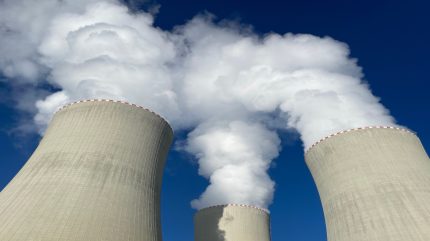
Indonesia will expand its renewable energy capacity by 2040, and also focus on introducing 10GW of nuclear power, as reported by Reuters.
In February 2025, it announced plans to construct nuclear power plants with a capacity of 4.3GW as part of its strategy for cleaner energy and to reduce fossil fuel dependence.

Discover B2B Marketing That Performs
Combine business intelligence and editorial excellence to reach engaged professionals across 36 leading media platforms.
These moves are part of efforts to achieve carbon neutrality before 2050, according to Hashim Djojohadikusumo, special energy and climate envoy of President Prabowo Subianto.
Djojohadikusumo outlined that the country aims to add 103GW power capacity by 2040: 75GW from solar, wind, geothermal and biomass, 10GW from nuclear energy and the remaining 18GW from gas.
Indonesia’s current power capacity is around 90GW, with renewables making up less than 15GW.
Indonesia is among the world’s largest emitters of greenhouse gases, currently relies on coal for more than half of its energy needs and has no nuclear power plants in operation.

US Tariffs are shifting - will you react or anticipate?
Don’t let policy changes catch you off guard. Stay proactive with real-time data and expert analysis.
By GlobalDataHashim Djojohadikusumo was quoted by the news agency: “Many of the contracts will be … in the next five years … especially the nuclear (contracts) because of the long lead times.”
International companies Rosatom, the China National Nuclear Corporation, Rolls Royce, EDF and NuScale Power have expressed interest in Indonesia’s nuclear power ambitions.
“I think it’s conceivable that they will co-invest with an institution like Danantara”, Hashim mentioned, referring to the recently launched Danantara Indonesia sovereign wealth fund.
The location of the nuclear plants remains undecided, with concerns due to Indonesia’s position on the Pacific’s volcanic Ring of Fire.
However, Hashim suggested that the western part of Indonesia could host single-site nuclear plants, while floating small-modular reactors might be suitable for the eastern regions.
Despite the focus on transitioning to renewable energy, Hashim emphasised a balanced approach to avoid economic disruption.
A deal with the Asian Development Bank for the early retirement of the 660MW Cirebon-1 coal-fired plant in the province of West Java, supported by the $20bn Just Energy Transition Partnership (JETP), is expected to be finalised soon.
This comes amidst concerns over financial and legal risks associated with plant shutdowns and the recent withdrawal of the US government from the JETP.





